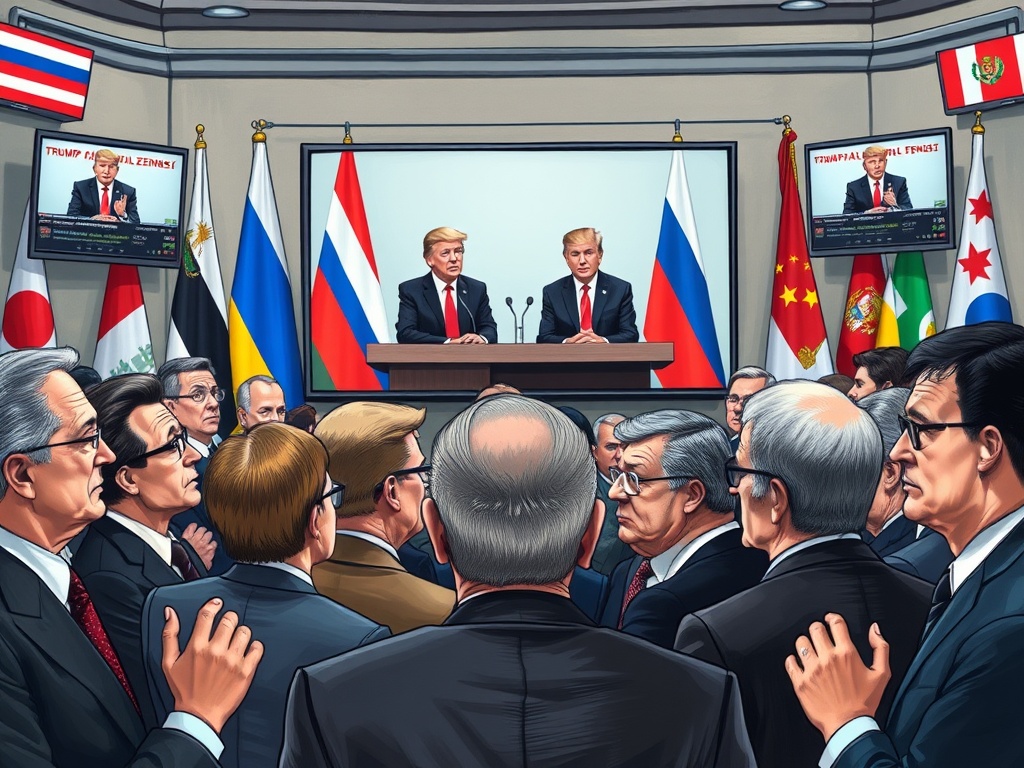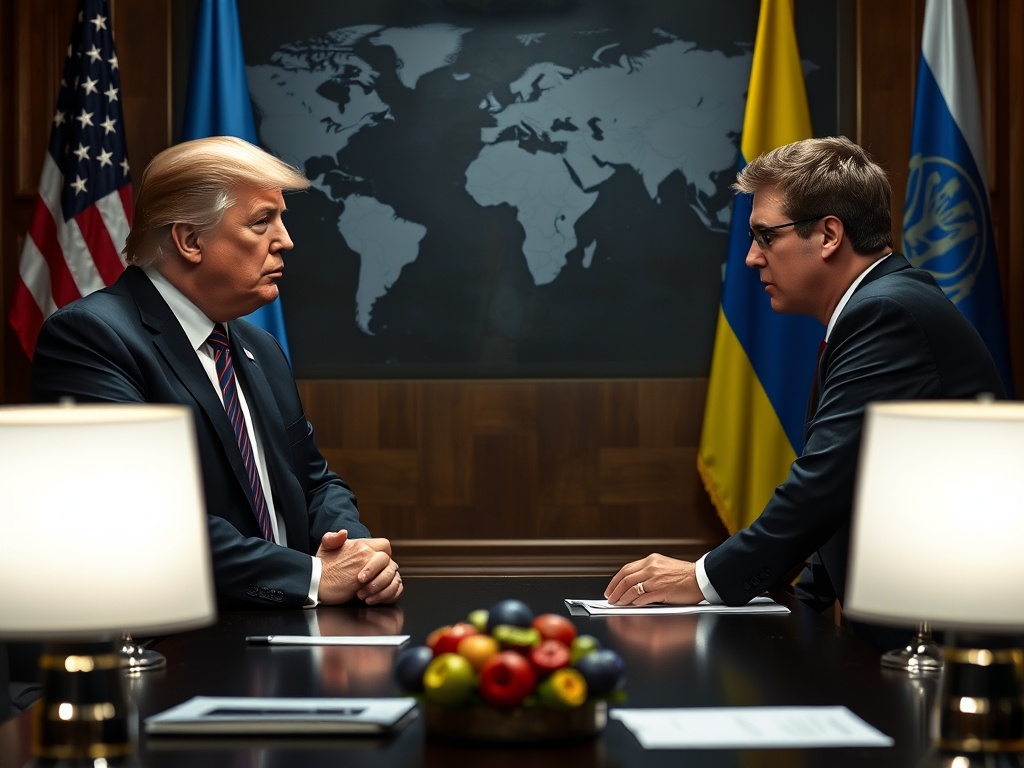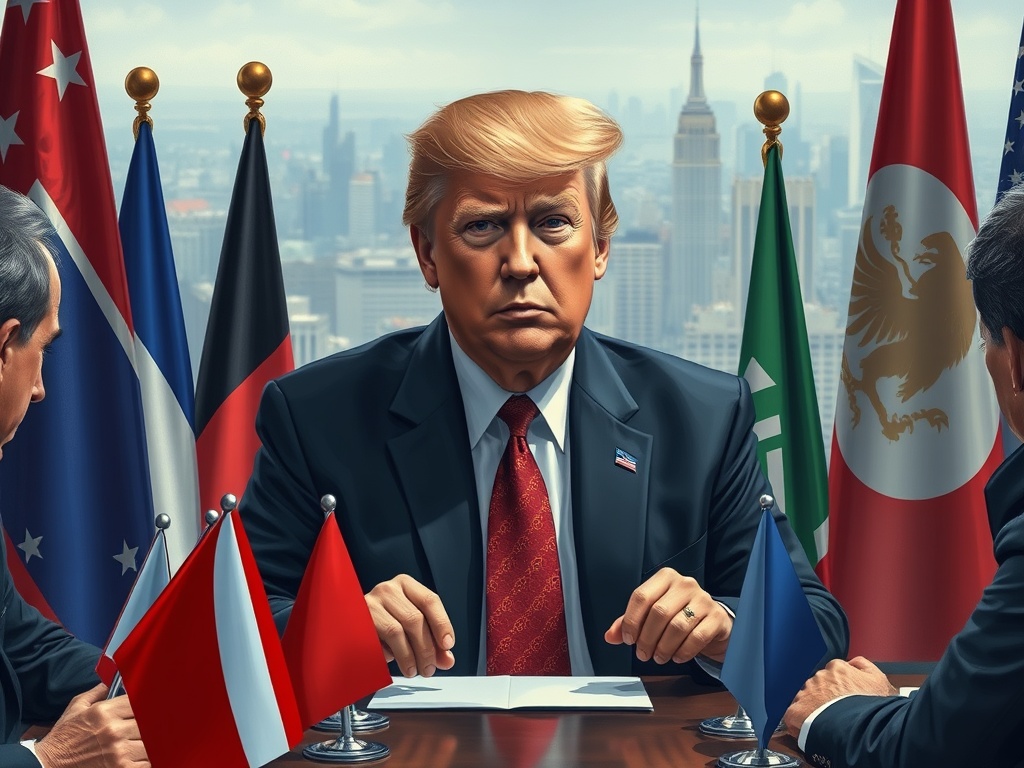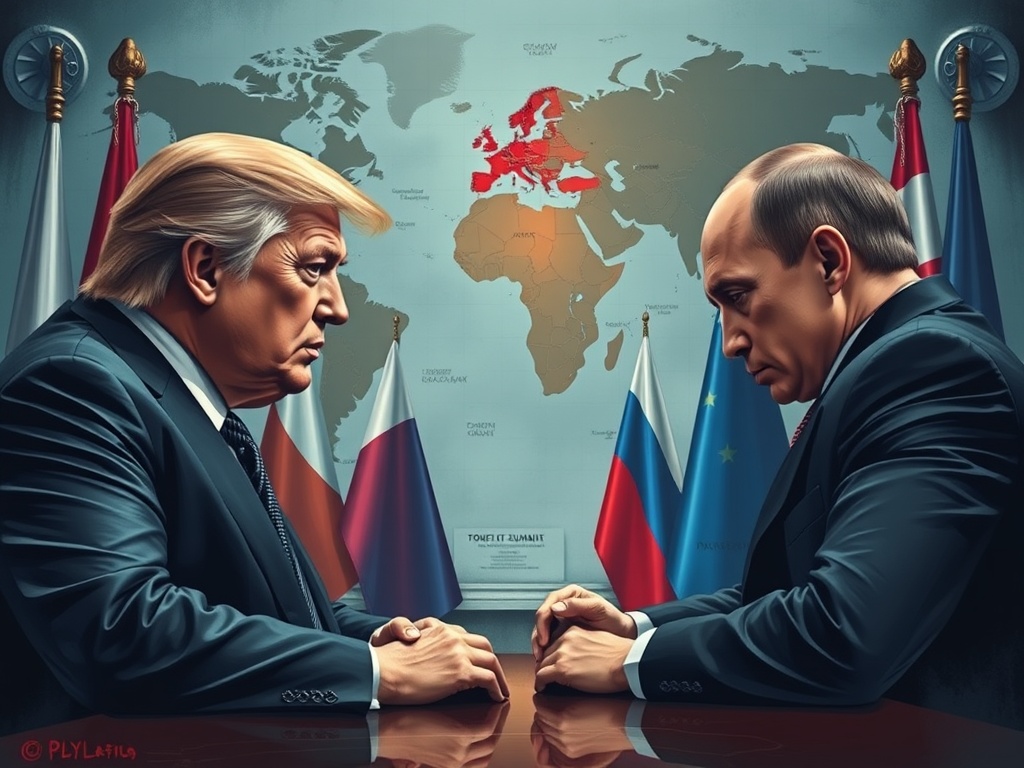The Diplomatic Dilemma: Trump, Zelensky, and the Global Reaction
The Inuit of Nunavik are known for having an impressive vocabulary, boasting over 50 distinct words for snow. In contrast, the British language has approximately 188 synonyms for rain. Currently, we are witnessing a complex web of diplomatic language as world leaders grapple with how to address Donald Trump’s recent controversial statements.
In a surprising twist, Trump has labeled Ukraine’s President Volodymyr Zelensky a dictator, insinuating that he initiated the conflict in Ukraine. This rhetoric mirrors the narratives that Vladimir Putin has long propagated. Setting aside Trump’s history of attempting to overturn electoral outcomes in the U.S., it’s crucial to focus on the implications of his words.
Zelensky responded firmly, stating that Trump appears to be “living in a disinformation space governed by Moscow.” This statement is perhaps the closest a statesman can come to suggesting that Trump is akin to a programmed Russian bot. At this moment, it’s difficult to counter that assertion.
Once Zelensky characterized Trump as a mouthpiece for Putin, it was clear that the onus was on other leaders to respond. Sir Keir Starmer was quick to reaffirm his support for Zelensky, reassuring the Ukrainian leader that he is not a dictator. Kemi Badenoch followed suit, calling Putin’s invasion illegal and emphasizing Zelensky’s role as a democratic leader. However, this support raises a multitude of unspoken questions, and the resulting political discourse has been muddled.
For instance, Lisa Nandy, the UK Culture Secretary, spoke about the need to “dial it down” and “take the heat out” of discussions between Zelensky and Trump. Meanwhile, Peter Mandelson, the UK’s ambassador to Washington, described Trump’s comments as “interesting” without issuing any direct criticism. Badenoch redirected her focus towards Nigel Farage, criticizing his admiration for Putin, while Farage later clarified that Zelensky is indeed “not a dictator.” Notably, there was no direct condemnation of Trump’s remarks from any prominent figures.
If political leaders recognize Zelensky as the legitimate president of Ukraine, are they willing to confront Trump’s erroneous claims? More fundamentally, do they acknowledge that Trump has effectively switched allegiances in this conflict? His apparent desire for Ukraine’s downfall and his admiration for Putin raise critical questions. If they are aware of this reality—as many defenders of democracy likely are—why do they hesitate to voice it openly?
The underlying issue is fear, compounded by a misguided belief that traditional diplomatic approaches can still be effective in the age of Trump. The era of Ferrero Rocher diplomacy is over. The image of after-dinner chocolates and the sound of clinking brandy glasses in a quiet, wood-paneled study belongs to a bygone era of negotiation, one that has proven ineffective in real terms.
Trump thrives on flattery. As a narcissistic leader, he is easily appeased by praise and shiny objects. However, such superficial gestures do not address the core issues at hand.
When Theresa May made her first state visit to Washington, she famously held Trump’s hand, only for him to publicly undermine her when Boris Johnson began to gain traction. He referred to Johnson as “Britain Trump,” a phrase that was as ambiguously derogatory as it was grammatically awkward. It suggested a relationship that was both close and tenuous. They exchanged phone numbers, yet the much-anticipated post-Brexit trade deal never materialized, and soon, Trump was out of office.
As Starmer prepares to travel to Washington next week, he seems more focused on appeasing Trump than confronting him. He believes that by calming tensions, he can alleviate Trump’s tariffs on Britain. This might yield temporary results, but the underlying volatility remains unchanged.
Read Next
-
I hate to say it but it’s time to bring back Boris Johnson

No one wishes to engage in a confrontation with a leader who seemingly holds all the cards in the global arena.
However, the time may come when such a confrontation is unavoidable. Otherwise, what is the point of holding power? Trump has a penchant for what we euphemistically label “strongmen.” However, most of these figures are not strong in a courageous sense; rather, they wield power through intimidation—over neighboring nations, their own citizens, and marginalized groups. Trump has consistently expressed admiration for autocrats, those who maintain dominance through threats, deception, and military might. Where are the leaders willing to speak out against this bullying?
Supporting the oppressed cannot occur in isolation from denouncing the oppressors. The passive voice may work in literature, but it has no place in leadership.
Mike Pence, Trump’s former vice president, faced imminent danger during the January 6 riots, where he was targeted by individuals who blamed him for not supporting Trump’s false election claims. This soft-spoken man, who professes allegiance to God over country, made a statement that could be seen as a revolutionary act in contemporary America. He began his statement with a respectful acknowledgment: “Mr. President, Ukraine did not start this war.” He concluded with a powerful assertion: “The road to peace must be built on truth.” This statement represents one of the few instances where the American right has confronted Trump’s dishonesty recently.
Pence is surrounded by Republican senators who are struggling to articulate their positions clearly. Their vague statements support Ukraine while avoiding direct criticism of the man who is effectively pushing the country towards capitulation. Congress is filled with individuals looking for a backbone to stand up to the challenges.
A former vice president learned this lesson the hard way, especially after facing a life-threatening situation. Nonetheless, there are more straightforward paths to take. Particularly as we face the looming specter of a second Trump administration, it’s crucial to recognize that this conflict is just the beginning of a much larger struggle.
Let’s face reality: regardless of any diplomatic strategies employed, Britain is unlikely to secure lasting benefits from its relationship with Trump’s America. Historically, we seldom do.
However, we can emerge from this situation with clarity, integrity, and dignity. We must find a way to stand firm, offering a solid foundation for those seeking to assert their own strength.
Emily Maitlis is a journalist, broadcaster, and host of the podcast The News Agents.




